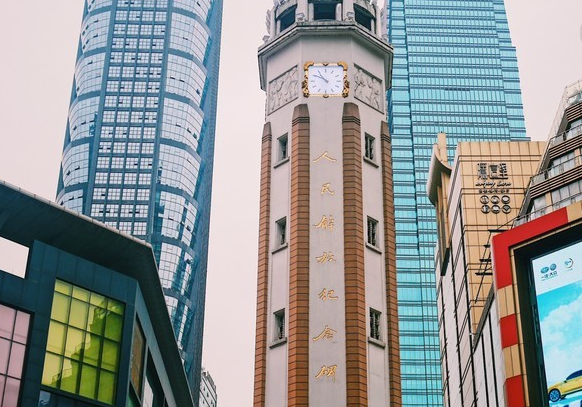24 Hours Hotline: +8613735411378
Email:[email protected]
24 Hours Hotline: +8613735411378
Email:[email protected]

Overview
Chongqing, formerly romanized as Chungking, is a major city in southwest China. Administratively, it is one of China's four direct-controlled municipalities (the other three are Beijing, Shanghai and Tianjin), and the only such municipality in China located far away from the coast.
The municipality was created on 14 March 1997 to help the Three Gorges Dam migration, succeeding the sub-provincial city administration that was part of Sichuan Province. Chongqing's population as of 2015 is just over 30 million with an urban population of 18.38 million. Of these, approximately 8.5 million people live in Chongqing central urban area; Fuling District, Wanzhou District and Qianjiang District are in fact cities in their own right, and along with the central urban area constitute a metropolitan area housing 17 million people. According to the 2010 census, Chongqing is the most populous Chinese municipality, and also the largest direct-controlled municipality in China, and comprises 26 districts, 8 counties, and 4 autonomous counties.
The official abbreviation of the city, Yu (?), was approved by the State Council on 18 April 1997. This abbreviation is derived from the old name of a part of the Jialing River that runs through Chongqing and feeds into the Yangtze River. Chongqing was also a Sichuan province municipality during the Republic of China (ROC) administration, serving as its wartime capital during the Second Sino-Japanese War (1937–1945).
Chongqing has a significant history and culture and serves as the economic centre of the upstream Yangtze basin. It is a major manufacturing centre and transportation hub; a July 2012 report by the Economist Intelligence Unit described it as one of China's "30 emerging megacities".
Geography
Chongqing is the largest inland city of China, located in the southeast of the Sichuan Basin at the junction of the Yangtze River and Jialing River. It is an extremely large metropolis on the upper reaches of the Yangtze and an industrial and commercial importance in West China. Surrounded by waters on three sides, and by the mountains on four sides, Chongqing is laso known as 'mountain city', 'foggy city' and 'furnace city'.

Natural resources
It has crisscrossing rivers and the water resources can generate 7.5 million kw of power. Chongqing has one of the three largest resources of mineral water in China. It has 38 kinds of mineral deposits, including coal, natural gas, strontium, aluminum oxide, manganese, limestone, marble, spar, gypsum, quartz, mercury, and rock salt. Chongqing leads China and ranks second in the world in deposits of strontium.
Chongqing’s weather is changeable, and the area has many species of plants and animals. Chongqing is proud of its tourism resources, with mountains, rivers, forests, springs, waterfalls, gorges, and caves all displaying the majesty, the fantasy, the danger, and the seclusion of nature. The famous tourist attractions include the Three Gorges on the Yangtze River; the night view of the City of Mountains; the rock carvings at Dazu--a World Cultural Heritage site; the Lotus Cave, recently discovered near the Four-Sided Mountains; and Tiankeng (Heavenly Pit) and Difeng (Earthly Rift Valley), two rare geological spectacles at Fengjie.
Foreign investment
By the end of 1999, the city had attracted US$5.2 billion in foreign investment. Firms from over 40 countries, including 27 of the world’s top 500 enterprises, had established more than 2,000 enterprises there. The Chongqing Economic and Technological Development Zone at the state level and 10 development zones at the provincial level have served a window on Chongqing. They are the major areas foreign investment goes.
History
The History of Chongqing can be traced back to 3,000 years ago, endowing with much historical and cultural significance. Traces of man's presence have been found from as far back as the end of the Old Stone Age 20,000 to 30,000 years ago.
From the beginning of the Shang Dynasty (16th century BC) to the close of the Warring States Period (221 BC), it was the capital of the state of Ba. From the Qin Dynasty through the Eastern Han Dynasty (221 BC - 220 AD), it was a prefecture also known as Ba. During the Sui and Tang Dynasties, (AD 581-907), it was known as the sub-prefecture of Yuzhou, hence its standardby name 'Yu'. Subsequently, during the Northern Song Dynasty (AD 960-1127), it was renamed Gongzhou. In 1189, during the Southern Song Dynasty, Zhao Dun, later the Guangzong Emperor, was given the title Prince of Gong. Regarding this as an exceedingly joyous event, he upgraded its status to that of a prefecture and renamed it as 'Chongqing'' which means 'double celebration' in Chinese, the name has been carried until now.
Prev: Chongqing Weather & Climate
Next: No next link
Wechat: Chinaprivatetour
24 Hours Hotline:
+8613735411378
* Authentic Experiences: Genuine local experiences that immerse you in the true essence of Chengdu and beyond.
* Safety First: Highest safety standards with secure activities and reliable transportation.
* Customizable Tours: Flexible itineraries tailored to your interests and needs.
* Local Expertise: In-depth knowledge of Chengdu and China, offering exclusive insights.
* Professional Guides: Licensed bilingual guides with over 5 years of experience.
* Comfortable Travel: Experienced drivers and well-maintained vehicles for a smooth journey.
* Sustainable Tourism: Commitment to responsible tourism and supporting local communities.
* Customer-Focused: Personalized service and continuous improvement based on your feedback.
* Free Cancellation: Cancel up to 24 hours before travel for flexibility and peace of mind.
* 24/7 Support: Round-the-clock assistance for any questions or help needed.
1 to 1 tailor-made service from our professional travel advisors for the most sophisticated
Constantly excellent reviews for attraction, hotel and service Competitive price
Local experts provide quality tours Best selected knowledgeable local guides Authentic local restaurants
7*24 hours available to create you a worry-free tour. No Hidden Fees and absolutely no pressure to buy. Secured







